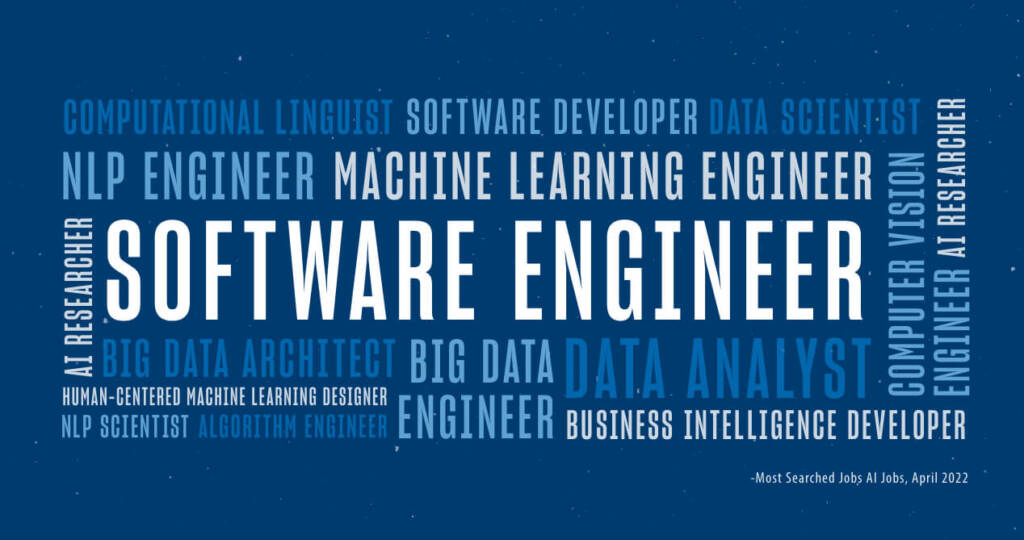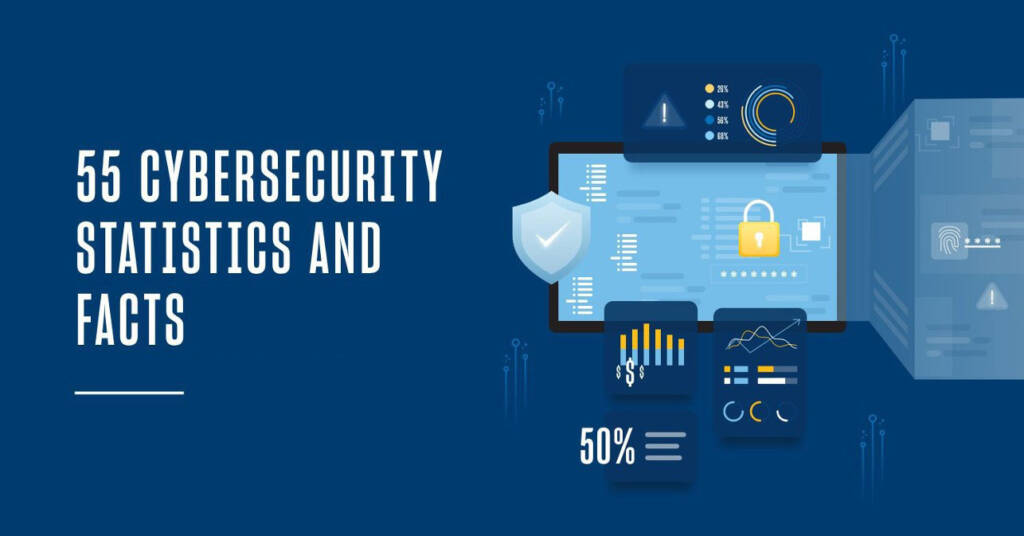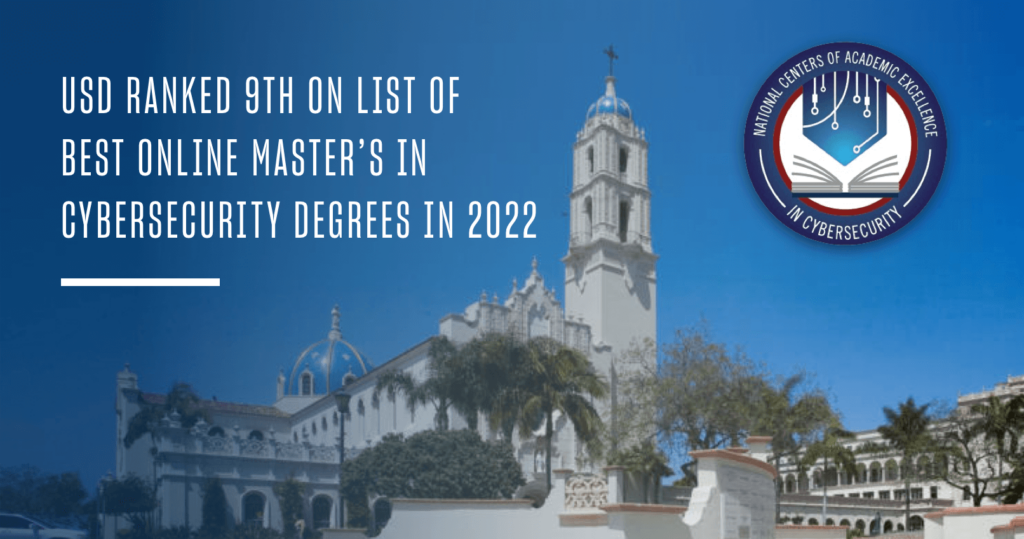If you’re exploring career paths in tech, you’ve likely heard terms such as information systems (IS) and information technology (IT) used together, or even interchangeably. While these fields are closely related, they represent distinct areas within the tech industry, each with its own academic focus, skill set and career opportunities.
Whether you choose to specialize in IT or IS, earning a graduate degree can be a powerful way to expand your expertise, create opportunities for leadership roles and increase your value in a technology-focused job market.
In this guide, we’ll break down the differences between IS and IT, compare degrees side-by-side and help you determine which option is the right fit for your career.
What Are Information Systems?
Information systems refers to the coordinated set of people, processes, data and technology that organizations use to collect, process, store and distribute information. The goal of IS is to support better decision-making, coordination, control and analysis, ultimately helping businesses gain insights and operate more efficiently. Unlike fields that focus solely on hardware or software, information systems emphasizes the interaction between technology and business strategy.
Educational Pathways
Students interested in an IS career can take several academic routes to get there. Popular avenues include:
- Earning a bachelor’s degree in computer science, management information systems (MIS) or business administration
- Completing a master’s degree program, such as Master of Science in Information Systems (MSIS)
- Pursuing professional certifications. Having credentials such as Certified Information Systems Security Professional (CISSP), Certified Information Systems Auditor (CISA) or Certified in Risk and Information Systems Control (CRISC) can significantly further career prospects.
Career Opportunities
Graduates with an IS background are uniquely qualified for roles that straddle business and technology. Common career paths include:
- Business Analyst
- Data Analyst
- Information Systems Manager
- ERP Consultant
- Solutions Architect
- Systems Analyst
- Director of Information Systems
- Chief Information Officer (CIO)
Job Outlook
The demand for professionals with expertise in information systems continues to be strong. According to projections from the U.S. Bureau of Labor Statistics, employment in IS-related fields is expected to grow much faster than the average for all occupations, with an average of 356,700 openings projected each year through 2033.
What Is Information Technology?
Information technology deals with the use of computers, networks, storage systems and other digital infrastructure to process, store, transmit and secure data. While IS focuses on the integration of technology and business processes, IT is more concerned with the technical foundation that makes those processes possible. Broadly, IT encompasses four core areas:
- Hardware: Physical devices, such as servers and computers
- Software: The applications, operating systems and tools that run using hardware
- Databases: Systems used for storing, retrieving and managing structured information
- Networks: The connections that enable systems and users to communicate
Educational Pathways
Students pursuing careers in the IT field have a wide range of academic options:
- Bachelor’s degrees in computer science, software engineering and data science or analytics can all prepare students for IT roles.
- Master’s programs, such as a Master of Science in Information Technology Leadership (MSITL), provide advanced training in areas that include cloud computing, cybersecurity and enterprise infrastructure.
- Professional certifications are highly valued in the field and can give emerging IT professionals a competitive edge in the job market. CompTIA A+, Network+ and Cisco Certified Network Associate (CCNA) are all widely recognized options.
Career Opportunities
Information technology professionals ensure that the digital backbone of an organization runs smoothly and securely. Common roles include:
- Network or Systems Administrator
- Database Administrator
- Support Specialist
- Systems Engineer
- Cybersecurity Analyst
- IT Manager
- DevOps Engineer
- Chief Information Officer (CIO)
Job Outlook
Thanks to the continued demand for cloud services, cybersecurity expertise and data-driven operations across nearly every industry, prospects for IT roles are bright. Since IT and IS are closely linked, growth in the IT field is expected to follow the same trajectory.
Information Systems vs. Information Technology
Although information systems and information technology are closely related, there are key differences that make each a distinct discipline, highlighted in the chart below.
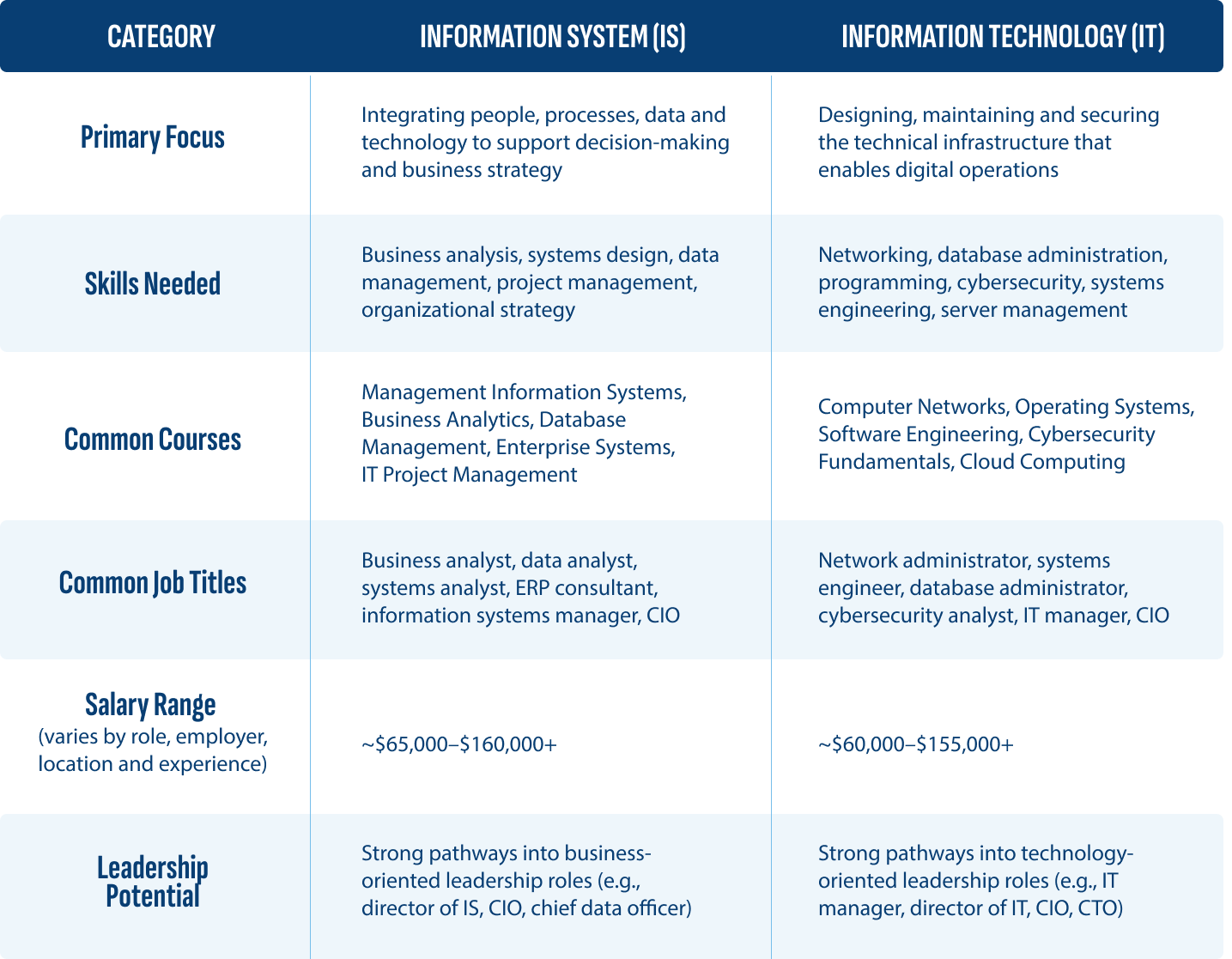
While both fields are essential to modern organizations, the key distinction lies in where the focus is placed. IS emphasizes the intersection of business and technology — helping companies use data and processes to inform strategy and decision-making. IT, on the other hand, concentrates on the technical foundation, the hardware, software, networks and security measures that keep systems running.
In terms of careers, IS professionals often move into roles that blend technology with business leadership, while IT professionals tend to specialize in technical expertise with opportunities to advance into senior infrastructure or cybersecurity leadership positions. Both career paths can lead to high-paying roles with strong job security, but the best fit ultimately depends on whether you’re more interested in solving business challenges through technology (information systems) or building and maintaining the technology itself (information technology).
Which Degree Is Right for You?
Deciding between a master’s in information systems and a master’s in information technology ultimately comes down to how your interests, strengths and career goals align with each field.
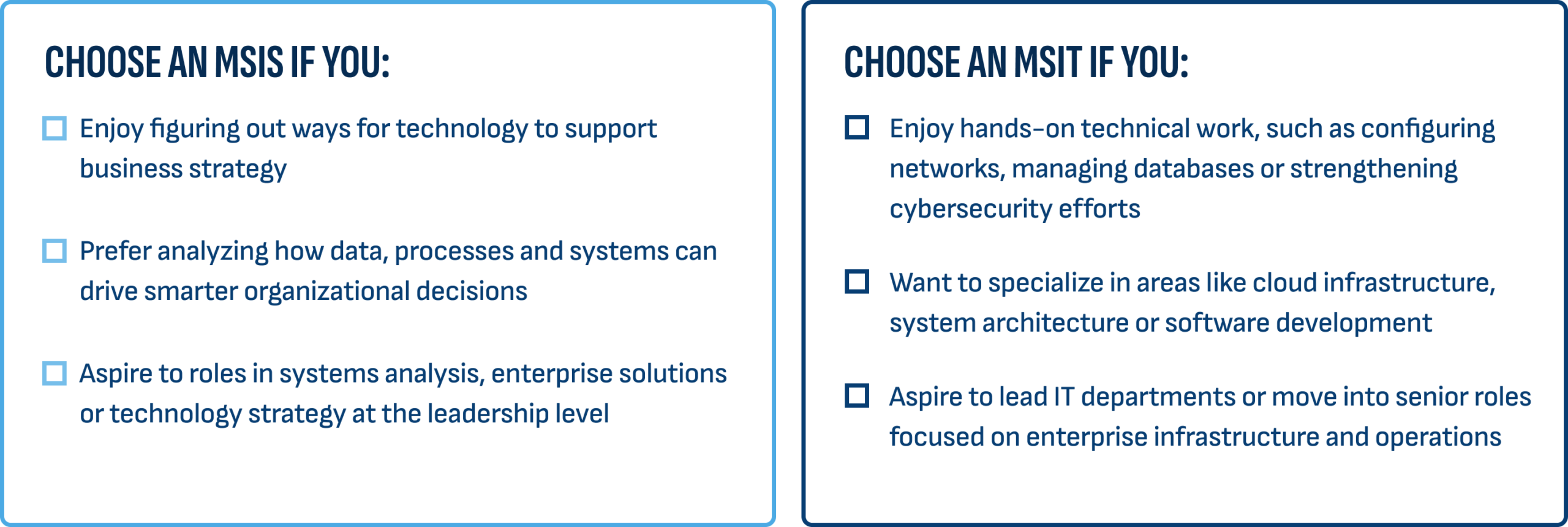
Bridge the Gap With a Degree From USD
If you’re drawn to aspects of both IS and IT, the Master of Science in Information Technology Leadership from the University of San Diego offers a powerful way to bridge the gap. This program is designed to develop leaders who not only understand the technical foundations of IT but also know how to strategically leverage technology to achieve organizational goals — an ability that’s increasingly essential in today’s digital economy.
With a curriculum that emphasizes leadership development, strategic planning and real-world application, students gain the tools and knowledge to lead IT teams while also shaping high-level technology strategy. The program’s flexible online format makes it possible to balance graduate study with professional and personal responsibilities, while courses focus on core areas such as cybersecurity leadership, DevOps and enterprise applications, data management and reporting.
Whether you see yourself guiding IT infrastructure or steering technology-enabled business transformation, USD’s MS in Information Technology Leadership equips you with the vision and skills to succeed.
Visit our program page today to request more information and see how this degree can help you advance your career.


